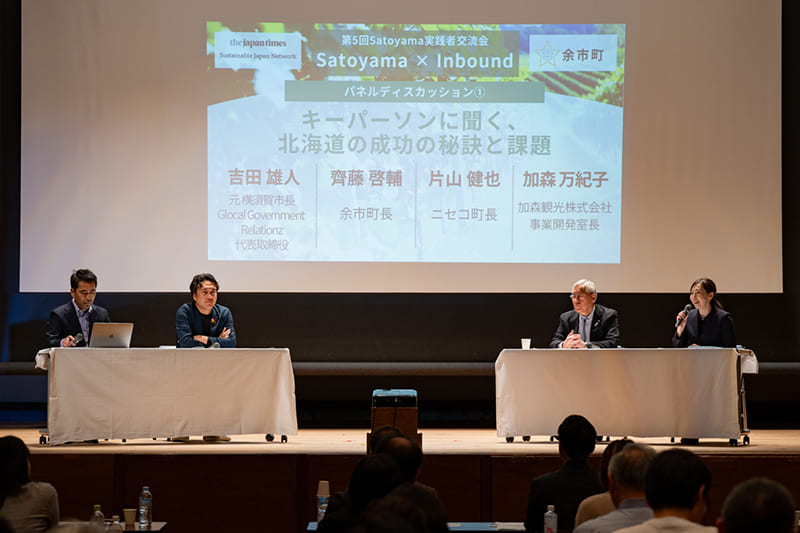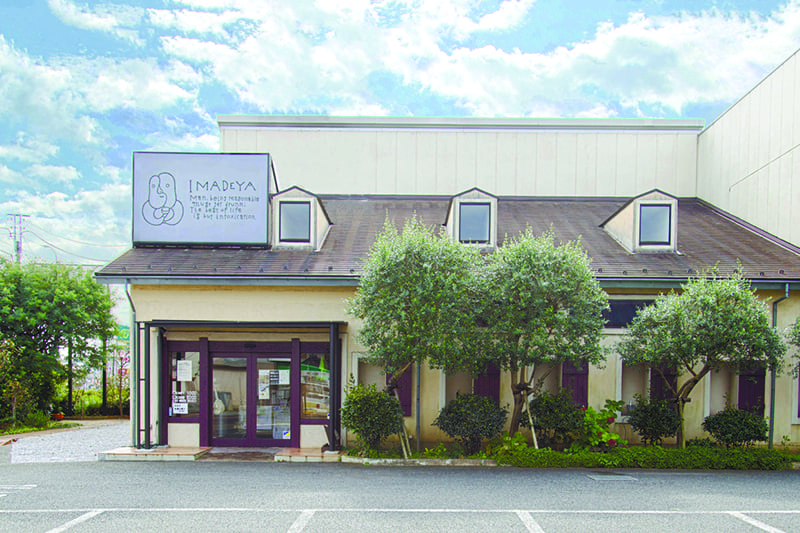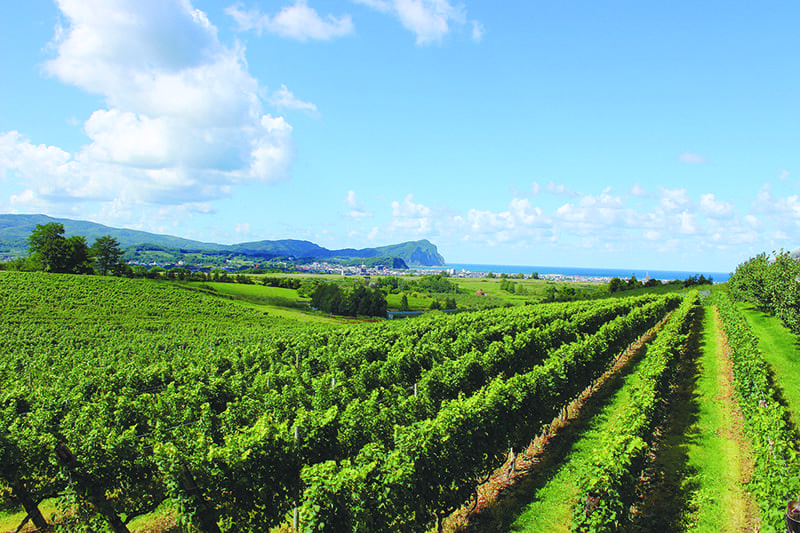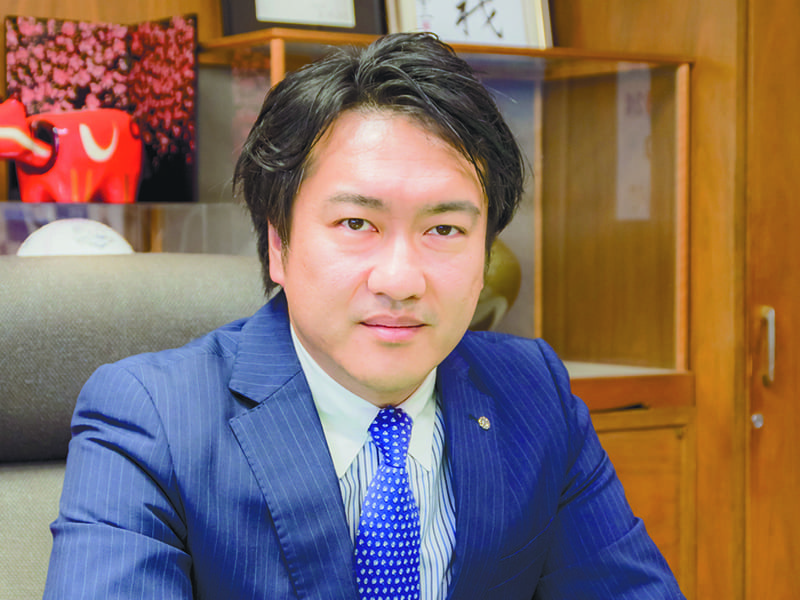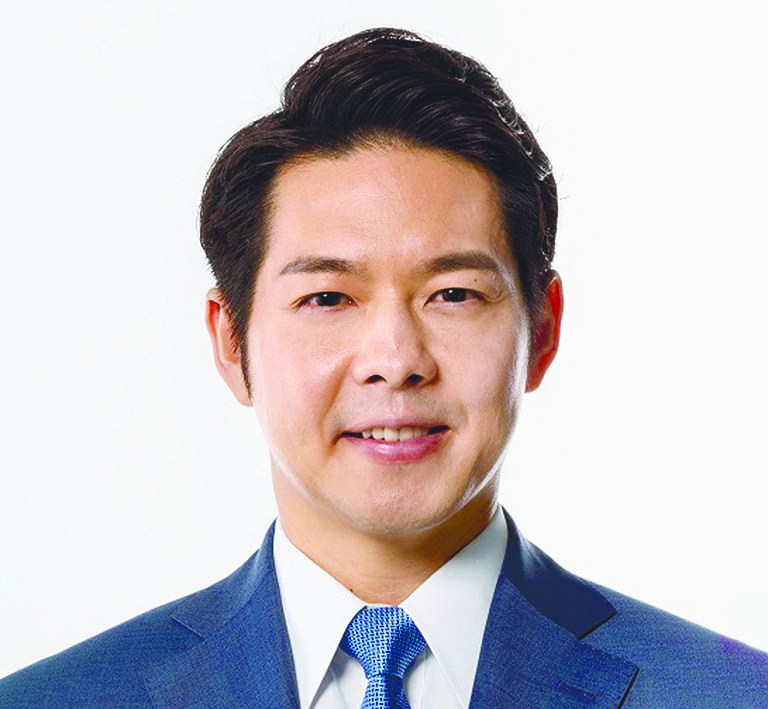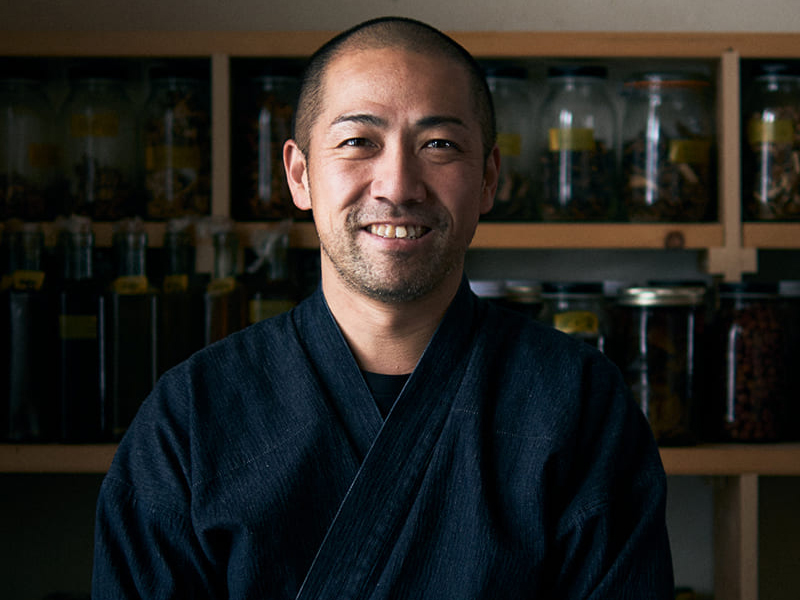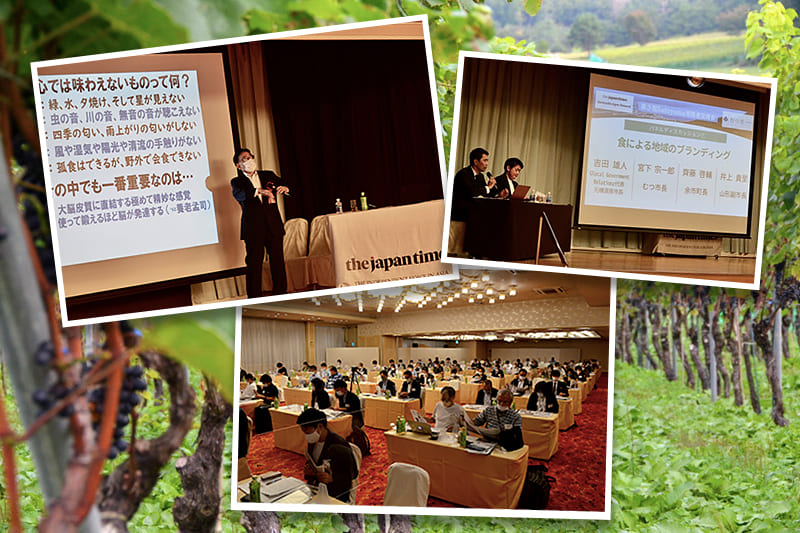October 18, 2024
Yoichi event spreads strategies for rural revitalization
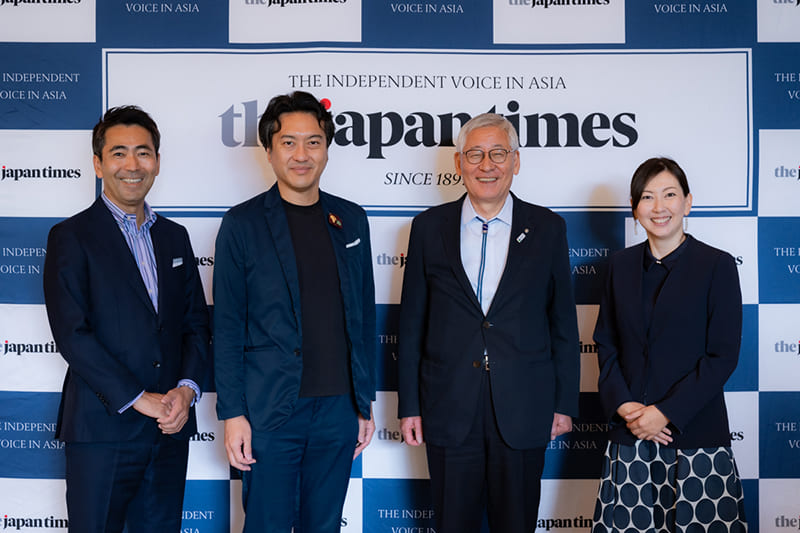
Experts discuss keys, challenges to Hokkaido’s success in tourism
The Hokkaido town of Yoichi, historically known for whisky and rapidly also gaining recognition as a wine-producing area, was the venue for the fifth annual event to share experiences about revitalizing rural economies through effectively using existing resources. The program of Sept. 28, the first day of the two-day event, was held at the town’s community center. The event was co-hosted by The Japan Times’ Sustainable Japan Network and the town.
In the first panel session, moderated by Yuto Yoshida, representative director of Glocal Government Relationz and former mayor of Yokosuka, three panelists talked about the keys and challenges to Hokkaido’s success in tourism.
Yoichi Mayor Keisuke Saito said he came to realize the good qualities of the area because of his time spent outside the country since his teenage years. Since taking office, he has promoted a strategy to boost the local economy by communicating its charms and focusing on industries with high potential. Thanks to these efforts, the town has steadily raised its profile over the last several years.
He said the most difficult part is gaining the understanding of the townspeople. “Focusing on one area can attract criticism, but if the benefits outweigh the criticism, then the strategy is the right one. We focus on the wine industry because it’s a broad-based industry with links to food and drink, agriculture and so on.” The strategy employs clear directions and methods, such as taking a Burgundian style characterized by a cluster of small wineries rather than a few giant ones, and marketing focused on gastronomes rather than spending a fortune on mass-marketing.
Kenya Katayama, mayor of the Hokkaido town of Niseko, said the town’s beautiful scenic environment has been its greatest resource. Niseko, famous for its powder snow in winter, has been successful in revitalizing tourism based on its residents’ autonomy. “For the local government to support the tourism industry, it is necessary to explain to the townspeople how the money generated by tourism contributes to the community,” he said.
To give local people greater benefits, he proposed a two-tier price system combined with the use of a community currency to let them get discounts at local stores. He also said the era of competition between regions is over and each region should cooperate with its neighbors in various ways, such as improving infrastructure and securing human resources.
Makiko Kamori, who leads the business development division of the Rusutsu Resort, said tourism is a tool that benefits the community. “The boost to tourism has significant spillover economic effects on transportation, food and drink, agriculture and many other sectors,” she said. She also pointed out that profits from tourism can be spent on preserving the local culture and nature.
To attract tourists throughout the year and stabilize revenue, she said, it is important to attract inbound tourists and school trips because domestic travel generally is limited to holiday seasons.
“One of the things we realized recently through our Rusutsu Report Nursery School is the market need for early childhood education in a rural environment, which could be a new potential,” she said.
